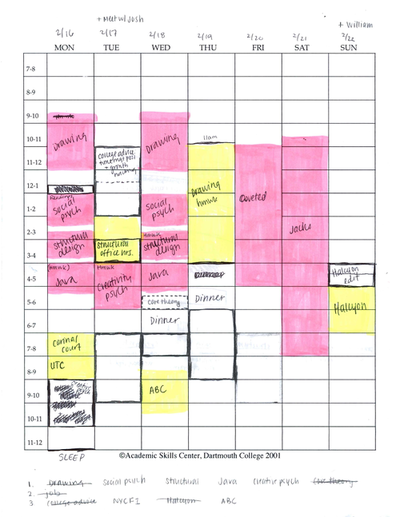This blog post was written by Intern Queen Campus Ambassador Courtland Thomas from Columbia University.
NYC Fashion Intern began one year ago when I wanted a school subscription to Women's Wear Daily at Columbia University. I spent two months asking various campus groups, student councils, and career development personnel to bring the legendary publication to campus. It didn't go anywhere, and I was furious. If MIT had a subscription to the fashion news behemoth for "research methods," why didn't my school?
But soon, my painpoint transformed into a solution. By combining two of my greatest passions - fashion and career advice - I set out to create the first student-run organization that educates students about the fashion industry.
Here are my top five tips for any student entrepreneur looking to solve a problem that affects many people, or even just themselves.
1. Manage your time like a pro. Managing your time in college can be one of the hardest skills to master, even amongst classes on Computer Coding and Chinese Theology. Even more challenging is adding a startup into the mix. While I do not by any means have time management down to a perfect artform, I do like to think I have a few tricks that keep me from going insane. That, and the color coordination of my Google Calendar is legendary.
Every week, I print a copy of Dartmouth's Weekly Calendar. I begin allocating time to mandatory things, like classes or my job in pink. I then highlight other time I must reserve for necessary meetings or activities, such as Halcyon and ABC, and block off one-hour slots into dinner. Finally, I see what days I have available for other tasks; usually, Tuesday mornings, Tuesday evenings, and Thursday evenings.
I'm a visual person, and seeing how I spend my time has made me realize how limited it is. There are only 168 hours in a week, and considering we spend a large majority of that time doing minute things such as sleeping or commuting - or even on Facebook - it's important to know what you're really getting done in your free time.
For more tips on time management, check out one of the most popular posts on my blog, The Ultimate Guide to Time Management in College.
2. Make sure to prioritize every moment. Because time is finite, it's important to make the most of it.
As part of my bedtime routine, I pick out what I'm going to wear the next day, draft any last-minute emails that I have to send in the morning, and make a list of 5 tasks that must get done before dinner the next day. Each part is vital for a good day's start, but the most important is the 5 Task Checklist.
The Task Checklist helps me prioritize my day into five key goals, whether it's copyediting a blog post by one of my writers or researching locations for a photoshoot. And no matter how many ideas I have, I do not overestimate my capabilities - I only choose five goals because 20-task lists are rarely completed and often make me feel unaccomplished at the end of the day.
3. Learn how to say no and do it often.Making the most of your time is related to not overstretching your commitments. If you can only accomplish five tasks each day, it truly means scaling back on the number of extracurriculars and activities you're involved in.
Saying 'no' is difficult, especially to friends or exciting projects, but declining new ideas or saving them for the future helps accomplish your current goals.
Warren Buffett, a well-known business investor, has often distinguished successful people and really successful people by their ability to say no. If you do not focus on things that are immediately beneficial and effective, you will consistently be distracted from success and left wondering why you aren't accomplishing your dreams.
4. Communicate clearly and effectively. People have many different perspectives and backgrounds, which makes it difficult to communicate about new ideas or challenging projects through any medium other than in-person. Emails are quick and (sometimes) efficient, but sometimes cold and liable for misinterpretations. That's why I interact with my teammates and potential business partners by voice as much as possible, preferably face-to-face, Skype/Facetime, or via phone.
For every meeting I attend, whether it's with my magazine staff or blog writers, I keep the conversation very clear and open-minded. Questions are more than welcomed, and clarification is often necessary. Walking away with "next steps" for both parties - or tasks assigned to each member - helps ensure the discussion moves forward in an actionable manner.
5. Last but hardly least... failure is important. Failure is one of the least discussed components of success, but it is as vital as the hard work it takes to be successful. In order to move forward as not only an successful entrepreneur, but also a successful person, you must reflect on the times where you didn't do so well and understand why. Know what has held you back from success on a certain project or relationship, whether it was not allocating enough time or not focusing on a particular part. Then, be more aware of this next time, whether you start earlier in advance or find a team member who can help on that other part you don't know how to manage.
If possible, always ask for feedback from work colleagues, professors, club members, bosses/supervisors, or even friends. Make sure to get both good feedback (what went well) and strong criticism (what could be improved upon).

